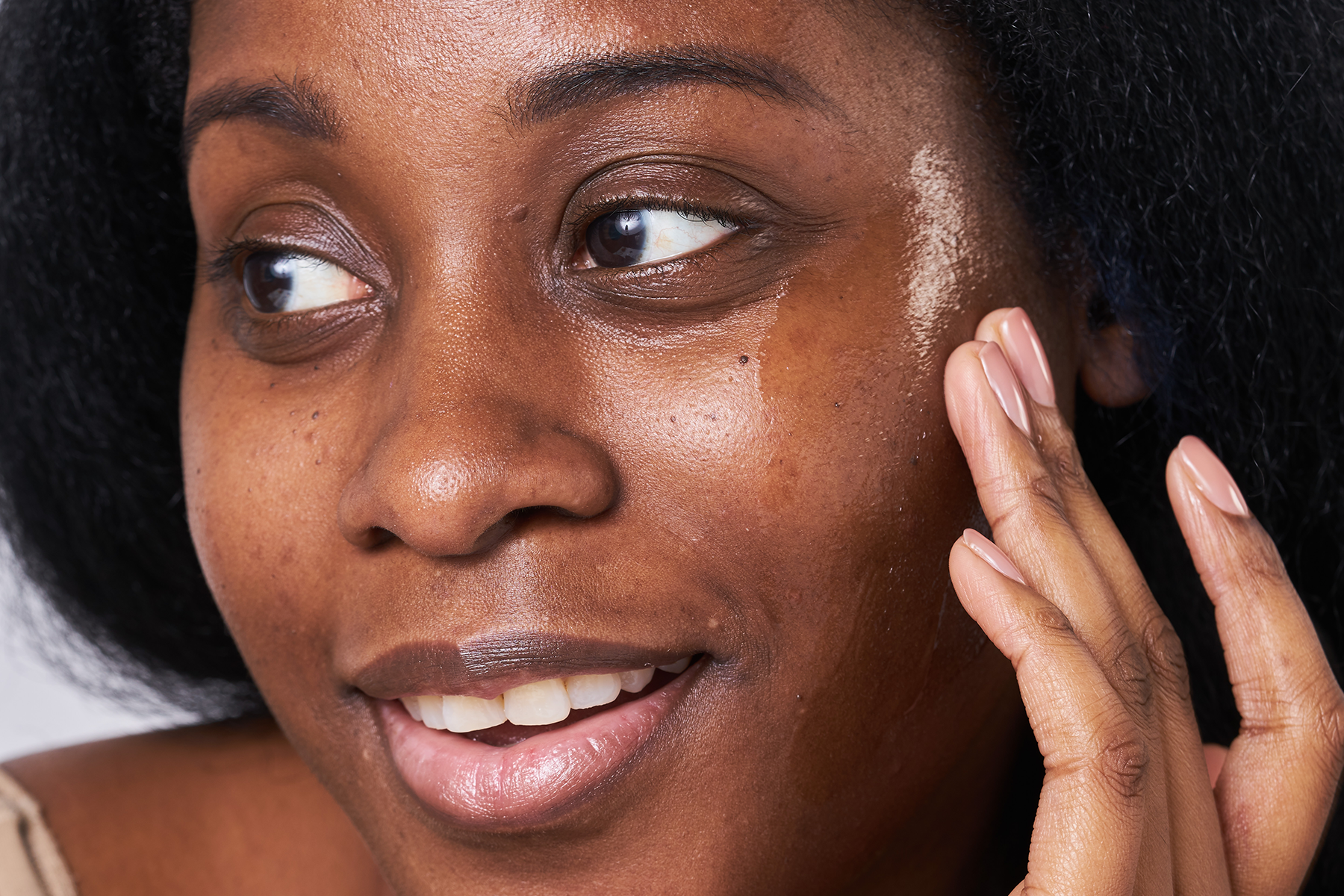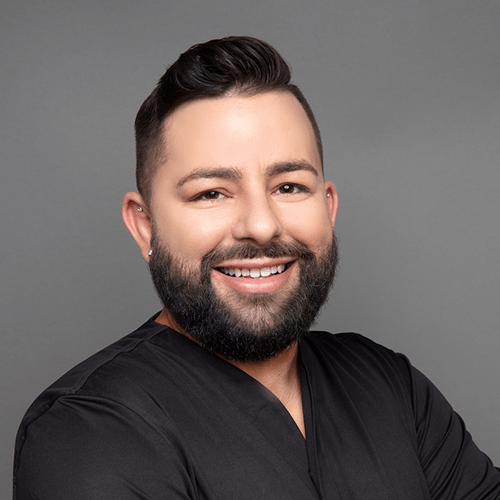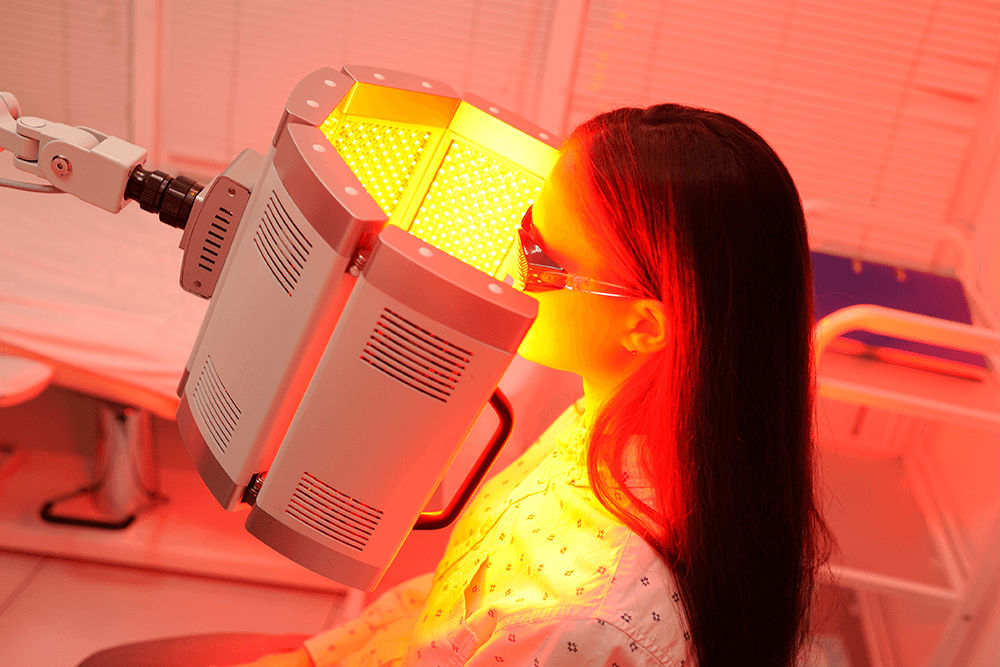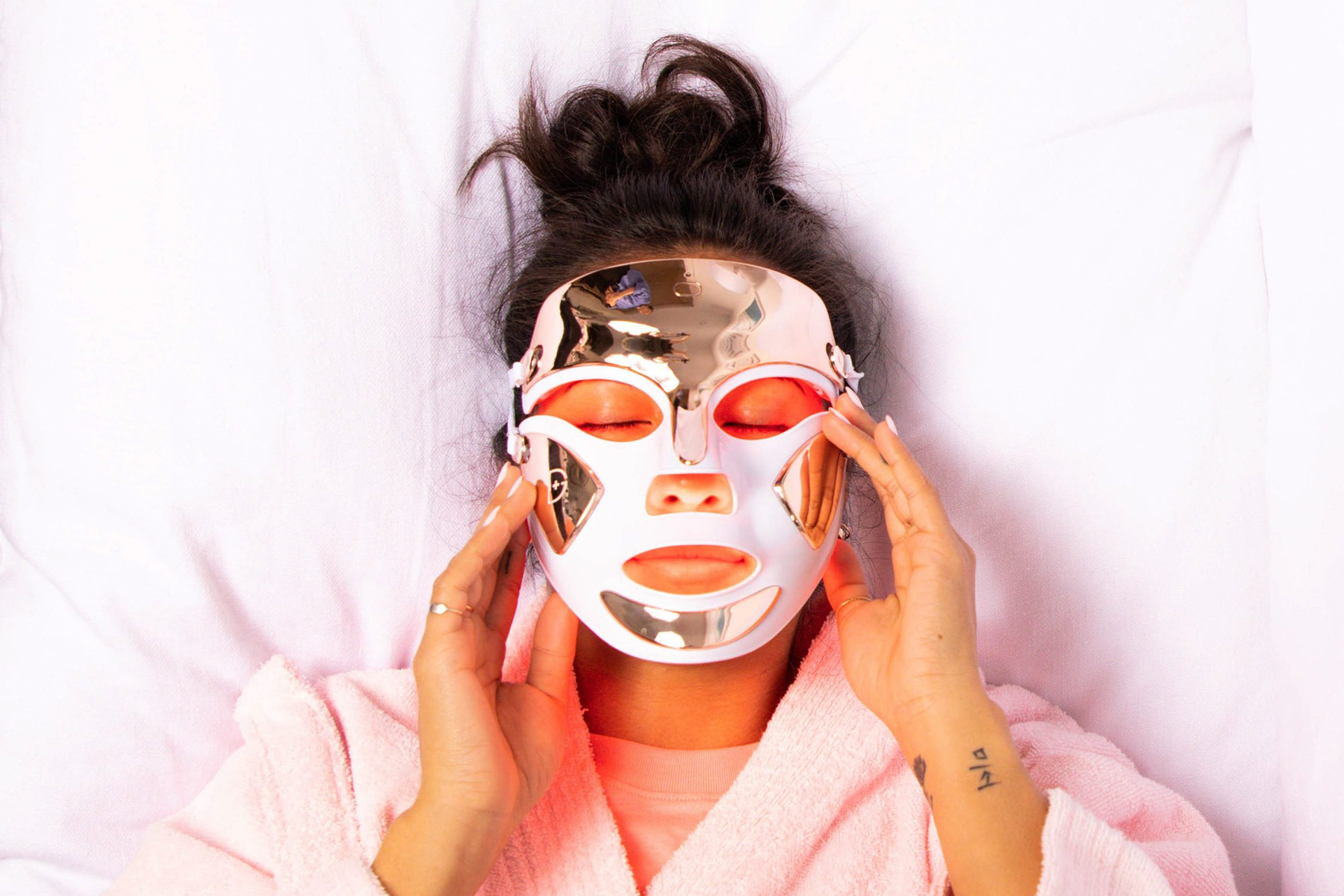The+Source
Intro: French playwright Pierre-Augustin Caron de Beaumarchais may have been referring to love when he wrote “even too much is not enough” in The Marriage of Figaro, but the idea that too much is never enough could apply equally to collagen. The most plentiful protein in our bodies, collagen is responsible for (among other things) giving skin support, stretch, and bounce. The skin makes collagen, but in decreasing amounts as we age (especially after menopause). As a result, wrinkles, sagging, and other signs of getting older occur.
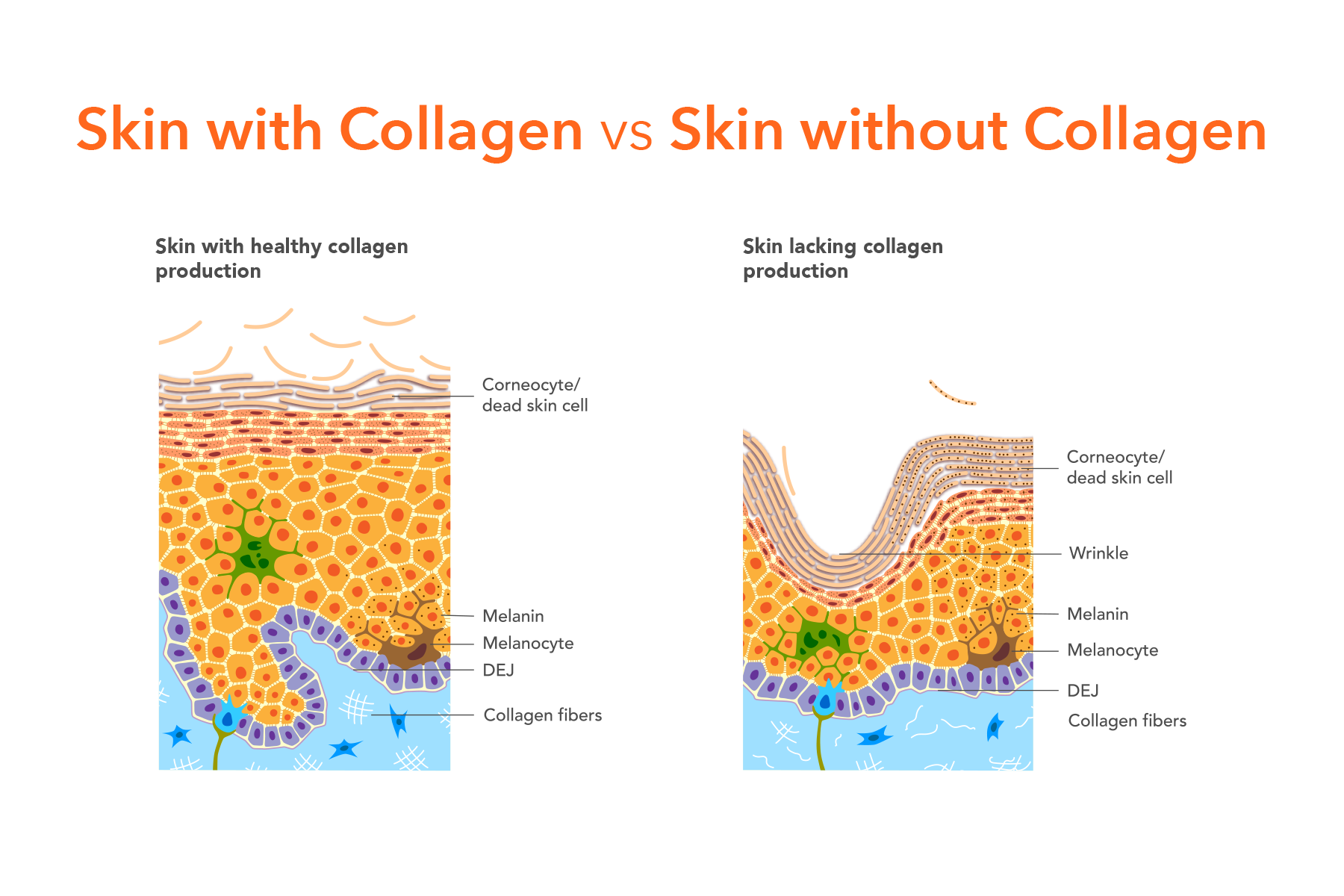
Pretty much the only way to get more collagen in your skin is to ramp up its internal manufacturing processes. (No, slathering on a collagen-based cream or drinking a collagen-laden smoothie will not up the amount of collagen in your face.)
So how do you speed up your skin’s collagen assembly line? The most effective way is consistent, daily application of certain topical ingredients (the more, the merrier!) that can goose your internal mechanisms to function at optimal levels. Read on to learn about these seven skincare essentials.
Retinol
This vitamin A derivative is in every dermatologist’s toolkit, and for good reason: Among its myriad, clinically proven actions, retinol stimulates fibroblasts to spit out more collagen fibers. Retinol also reduces the degradation of the collagen that already exists in skin. And if that weren’t enough, retinol diminishes discoloration, improves elasticity, and exfoliates clogged pores, so breakouts happen less often. Little wonder that docs consider retinol as important to a skincare regimen as sunscreen. (In fact, the two go hand-in-hand as retinol can make skin more sun-sensitive.)
Bakuchiol
Often called “natural retinol,” bakuchiol is a plant-based extract (it comes from the psoralea corylifolia or “babchi” plant, for those who are curious) that also stimulates collagen production. But despite being mentioned in the same breath as retinol, bakuchiol actually has a very different molecular structure. It’s less irritating than its synthetic sister retinol, so it’s often suggested for those with sensitive skin who are unable to tolerate traditional retinol. And bakuchiol is sometimes combined with retinol in skincare formulations because its anti-inflammatory properties allow you to get the skin boost of retinol without the resulting redness.
Vitamin C
Without going too deep into the science, vitamin C ranks right up there with retinol when it comes to collagen manufacture. It does everything from enabling the enzymes that stabilize collagen molecules to increasing the actual amount of collagen the body produces. Plus, it’s a noted free radical scavenger and decreaser of melanin (which helps reducing hyperpigmentation).
AHAs and BHAs
Hydroxy acids are the gift that keeps on giving. One clinically proven benefit is their ability to promote collagen synthesis. And while AHA and BHA exfoliation abilities result in glowier skin, there’s a school of thought that holds that another side effect of getting rid of old collagen fibers is that it allows new ones to form in their place.
Red LEDs
Light-emitting diodes (LEDs) are one form of low-level laser (light) therapy or LLLT, a non-invasive technology that’s used for wound healing, pain reduction, and more. The red wavelength applied to the face and body has been shown to spur collagen growth through a trickle-down effect that begins with the absorption of red light by the mitochondria and leads to the biostimulation of the fibroblasts. Red LED devices can also bring down inflammation and ramp up skin elasticity.
Niacinamide
Technically vitamin B3, niacinamide has been demonstrated to increase collagen in the dermal matrix. It’s also an antioxidant (good news!), reduces hyperpigmentation and redness (more good news!), and improves the skin barrier function, minimizing transepidermal water loss (TEWL) aka the reason skin can be so dry and crack (the best news!).
Don’t Forget SPF!
No, sunscreen alone doesn’t encourage your body to make more collagen, but it does help prevent collagen loss. UV rays are like kryptonite for collagen fibers—they weaken collagen strands and break them apart, undoing all your work trying to build more of the stuff through topical ingredient application. The bare minimum you can do is apply a mineral-based block with an SPF of at least 30 every single day.
Discover Dr. Dennis Gross Skincare for All Your Skincare Needs
For more skincare tips from the experts at Dr. Dennis Gross, check out our blog’s newest content. Shop the collection of Dr. Dennis Gross bestselling skincare backed by dermatologists.
